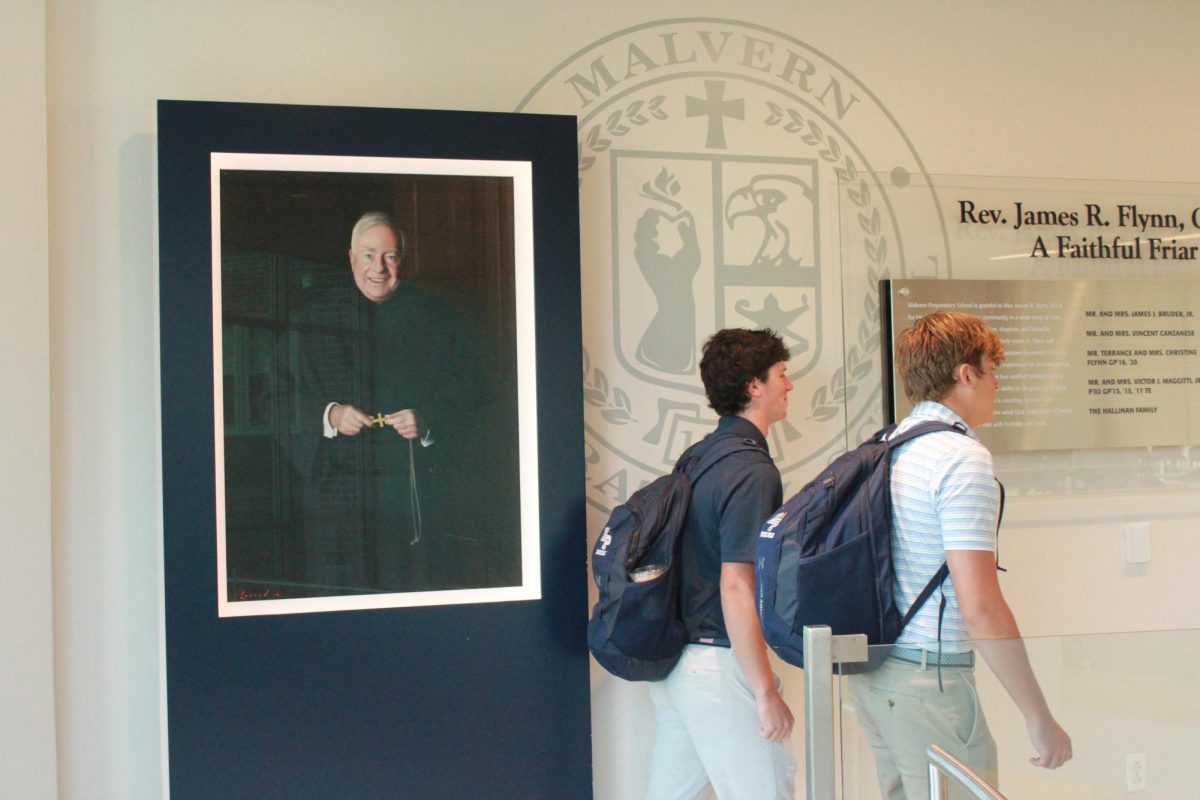Malvern non-Catholics share how Lent affects them and their everyday lives

Lent is a time for reflection, prayer, and sacrifice for Catholics. But what is this period like for Malvern’s non-Catholics?
Theology Department Leader Fr. Chris Drennen said Lent could be thought of as a time for reflection regardless of faith.
“I hope Lent affects [non-Catholic students] positively,” Drennen said. “It’s a good experience to be able to step back and reflect on who you are as a person during this time regardless of your faith. I think the opportunity to have the Lenten, spiritual experience whether it’s the weekly Mass that’s always been a tradition is a good experience.”
According to Malvern’s website, around 85% of students are Catholic. According to the school’s policies, Malvern does not discriminate based on religious beliefs in admissions or hiring practices.
“I hope no one is offended by it, but I think if someone was offended that’s something they should have prepared for coming to a Catholic school,” Drennen said. “I don’t think it’s offensive, I think it is a great thing.”
Senior Andy Ritter, who is Jewish, says Lent at Malvern was difficult to deal with at first.
“One of the first difficulties for me was the whole process of Lent. Like exactly what it was and who was behind it,” Ritter said. “But it was something I kind of picked up through my time at Malvern. I can understand for someone who is non-Catholic that Lent can be a confusing period, trying to understand what other people are doing.”
Ritter also said there can be criticism towards non-Catholics during Lent.
“One example is on Fridays when people get picky about if you can eat meat or not, and if you bring or eat meat people get all, ‘Oh he can eat meat because he’s not Catholic’ or whatever,” Ritter said.
“There can also be hostility towards someone who does not partake in Lenten traditions… some people can seem to take it out on people who are non-Catholic because they are giving up something,” he said.
Ritter said he had to get used to the weekly Masses in Lent.
“It’s something, if you’re non-Catholic, that you get used to,” he said. “As you mature you kind of realize that the Mass has its place in school and at Malvern tradition, and you embrace it while you are at Malvern for your four years, especially after your MECO experience.”
Photography and middle school teacher Ms. Jaclyn Cantor, who is Jewish, sees similarities between the Jewish and Catholic traditions.
“There are a lot similarities between the two faiths, especially in the Old Testament. But as it gets closer to Easter, it gets harder, because they start saying ‘those people’ and some of the sermons around Easter are hard to listen to,” Cantor said.
Cantor compared the Catholic practice of giving up something for Lent to Jewish traditions.
“From what I understand, for Lent you give something up to get closer to Christ, and you don’t eat meat,” she said. “For Passover, we don’t eat regular bread. We eat unleavened bread– not because of us giving it up, but because that’s what the Israelites had to do when they escaped Egypt.”
“Sometimes I worry that I will offend people if I eat meat in front of them,” Cantor added. “At least at school I try to honor what we do here with Lent.”
She said that when she came to Malvern students weren’t as accepting as now with other faiths.
“When I first came here 19 years ago, I didn’t really talk about being Jewish, just because I wasn’t sure how people would respond. Back then, people were not as open-minded about other religions,” Cantor said. “But now, people are much more accepting.”







